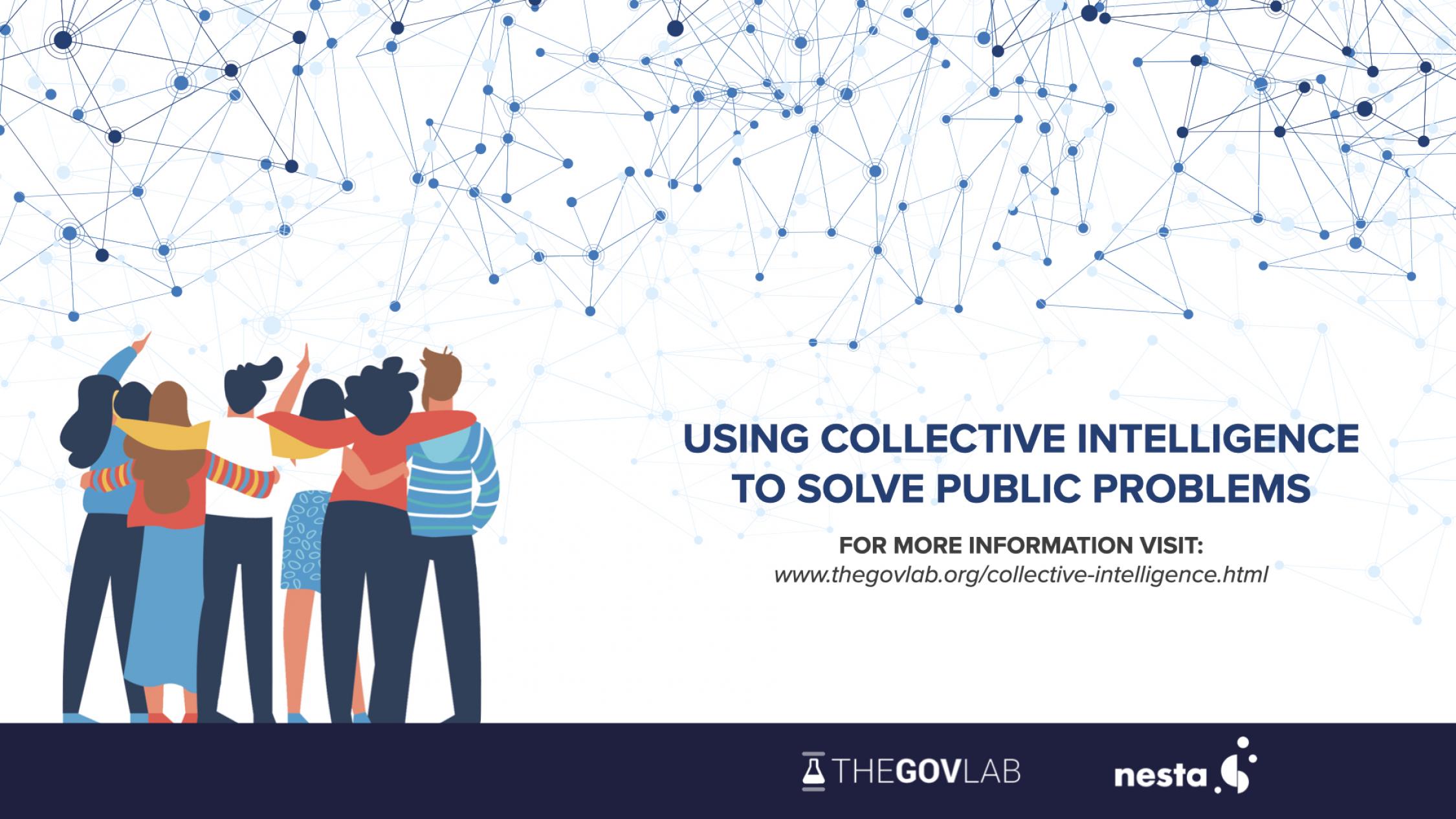
A new report from The Governance Lab (The GovLab) at NYU’s Tandon School of Engineering has found organizations that tap the wisdom of the crowd are better at solving many of the problems that trouble governments, including those exacerbated by COVID-19 — from air pollution and chronic illness, to sustainable development, climate change and disaster response.
The report, entitled Using Collective Intelligence to Solve Public Problems, examined global examples of how public institutions are using new technology to take advantage of the collective action and collective wisdom of people in their communities and around the world to address problems like climate change, loneliness and natural disaster response. The GovLab has also published 30 case studies to show how leaders have designed the most successful projects. These include Lakewood, Colorado, whose Sustainable Neighborhoods Program has engaged more than 20,000 residents in running 500 sustainability events and projects. SynAthina from Athens, Greece is a platform where 443 civic groups have posted 4,050 activities, enabling residents to collectively revitalize their city. Founded in Kenya in 2007 as an election monitoring tool, Ushahidi (Swahili for “Testimony”) has been used for 150,000 “crowdmapping” projects to rescue victims from the Haitian earthquake in 2010, prevent forest fires in Italy and Russia, and crowdsource incidents of sexual harassment in Egypt, among other campaigns in 160 countries.
The report is part of a broader “Collective Intelligence to Solve Public Problems” project that includes the 30 original case studies, an online course, a podcast, report and design guide all aimed at helping leaders respond to problems more efficiently and inclusively.
“As novel challenges continue to present themselves around the world, it is becoming increasingly apparent that traditional ways of solving problems are outdated and ineffective,” said Beth Simone Noveck, director of The GovLab. “Through this research, we have observed that institutions which choose to work more openly and collaboratively with local organizations and citizens are better able to respond to public problems, including emergencies and crises such as the challenges brought on by COVID-19.”
The accompanying practical guide Collective Intelligence: A Checklist for the Public Sector lays out nine questions which serve as a checklist for those who aim to design a collective intelligence initiative. The questions focus thinking on how to tap the capabilities of the crowd that are relevant for solving the problem at hand and help to ensure public engagement is meaningful and impactful.
Matt Ryan, Senior Fellow at The GovLab and report co-author, said “The speed, scale and complexity of public problems, combined with the trust crisis confronted by many public institutions, make using the skills and knowledge of ‘the crowd’ much more than a ‘nice-to-have’. For serious public policy makers and service providers it’s a necessity.”
